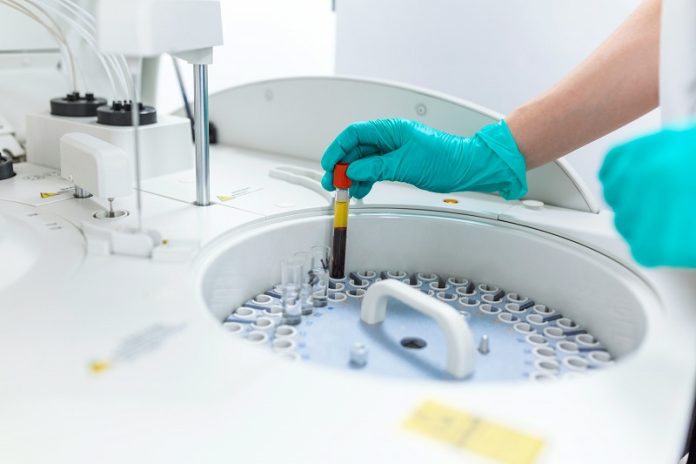
Pancreatic cancer is one of the most difficult types of cancer to detect early and treat successfully.
Often, it’s discovered only when it’s advanced, making it a leading cause of cancer-related deaths.
In fact, the odds are stark: just 12% of those diagnosed with pancreatic cancer survive more than five years. Yet, a new study has brought hope by uncovering crucial details about how this cancer begins and spreads.
Researchers from the Sloan Kettering Institute at Memorial Sloan Kettering Cancer Center (MSK) and IRB Barcelona have uncovered key insights about pancreatic cancer, especially its early stages. These findings, recently published in Science, could help shape future detection and treatment strategies.
How Pancreatic Cancer Starts: The Role of Mutations
A lot of cancer research focuses on gene mutations, which are changes in the DNA that disrupt normal cell functions. In pancreatic cancer, one gene mutation stands out: a change in the KRAS gene.
This gene usually regulates cell growth, but when it’s mutated, it essentially acts like a stuck accelerator, causing cells to grow out of control. This KRAS mutation is also common in lung and colorectal cancers, highlighting its role in cancer development across different organs.
More Than Just Mutations: The Influence of Inflammation
While mutations like those in the KRAS gene play a major role, there’s more to the story. The research shows that external factors, such as inflammation caused by injury or disease, also play a part.
When pancreatic tissue gets inflamed, this can rapidly trigger changes in cells and their surroundings, supporting the growth of cancerous cells.
Within just a day or two of tissue damage, inflammation can accelerate the development of cancer by making cells more capable of communicating and coordinating with each other, allowing cancer to spread more effectively.
The Study: Observing the Early Signs of Pancreatic Cancer
The researchers aimed to explore the initial stages of pancreatic cancer development. They focused on pancreatic ductal adenocarcinoma (PDAC), which is the most common and aggressive form of this cancer.
Using genetically engineered mice that simulate human pancreatic cancer, they observed how normal cells begin to transform into cancer cells. This approach allowed the team to monitor the changes in individual cells and study their behavior over time.
Shapeshifting Cells: A Key Finding on Cell Plasticity
One of the standout discoveries from this study is the concept of “cell plasticity” or the ability of cells to change identity. In simple terms, plasticity allows cells to “shapeshift,” gaining new functions and abilities.
The researchers found that inflammation boosts this shapeshifting capability in precancerous cells, making them more versatile and better equipped to send and receive signals. This ability to adapt and communicate is key to how pancreatic cancer progresses.
Interestingly, the researchers noted that these changes happened in a predictable way across different mice, suggesting that this shapeshifting process follows a consistent pattern. This could mean that, with enough understanding, it might one day be possible to control or even prevent this process.
Analyzing Cells One by One
To gain more detailed insights, the team used a method called single-cell analysis. This allowed them to look at individual cells and pinpoint the specific stages at which they became more likely to develop into cancer.
They noticed that certain cells stood out as “communication hubs”—cells that were central to the development and spread of cancer. With advanced computer analysis, they created a method to measure the level of shapeshifting in each cell.
They found that cells with higher plasticity had more genes related to communication, allowing them to interact more intensely with the immune system and other cells, which further promoted cancer growth.
Potential for Early Detection and Treatment
This new understanding of how pancreatic cancer begins and grows brings us closer to identifying ways to detect the disease at an earlier, more treatable stage.
By targeting the early cellular changes and communication patterns that promote cancer, scientists could potentially develop treatments that slow down or even halt the disease.
Though this study marks significant progress, the researchers emphasize that more work is needed to fully understand pancreatic cancer and to develop effective treatments based on these findings.
The research offers a promising foundation for the fight against pancreatic cancer. By illuminating the early changes in cells that lead to cancer, the study provides new directions for future studies, bringing us a step closer to better detection methods, treatments, and perhaps, one day, a cure.
If you care about cancer, please read studies about how to fight cancer with these anti-cancer superfoods, and a berry that can prevent cancer, diabetes and obesity.
For more health information, please see recent studies about how to harness the power of anti-cancer foods and supplements, and cancer-fighting foods and recipes.
Copyright © 2024 Knowridge Science Report. All rights reserved.



